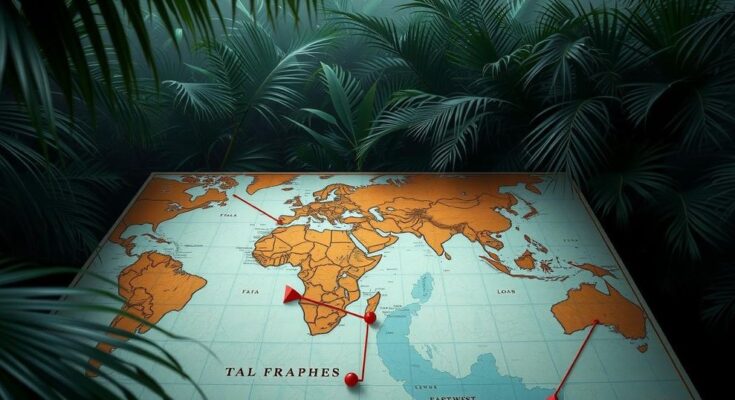The M23 militia, supported by Rwanda, has overtaken Goma in eastern DRC, alarming local residents. This represents a significant escalation in the protracted conflict between the two countries. M23, having previously occupied the city in 2012, is now poised to exploit the region’s mineral wealth, as they seek to establish long-term control.
The M23 militia, which has received substantial backing from Rwanda, has declared the capture of Goma, a prominent city in eastern Democratic Republic of Congo (DRC). This victory marks a significant escalation in the longstanding conflict between the two nations, alarming many residents who had fled to Goma seeking safety.
Previously, M23 briefly occupied Goma in 2012 before being defeated and remaining inactive for nearly a decade. With a reinvigorated strategy, the group aims to solidify its hold over the region and exploit the area’s rich mineral resources, as indicated by United Nations experts.
This latest occupation places M23 in a stronger position, forcing many locals who had fled armed conflicts to now live under the militia’s authority. The announcement of Goma’s “liberation” was made by an M23 spokesperson via social media, although there were unverified reports suggesting ongoing gunfire in the area.
The conflict in eastern Congo has persisted since the 1990s and is often referred to as Africa’s World War due to the involvement of numerous armed groups. The M23 militia, established during this tumultuous period, had previously occupied Goma before being driven out. However, its recent resurgence and subsequent capture of the city signal a critical turning point in the ongoing violence in the DRC, detrimental to both local communities and regional stability.
The capture of Goma by the M23 militia marks a pivotal moment in the ongoing conflict between Rwanda and the Democratic Republic of Congo. With the militia aiming for territorial control and resource exploitation, the implications for the local population and regional stability are profound. The situation remains volatile, underscoring the need for sustained international attention and intervention.
Original Source: www.nytimes.com




